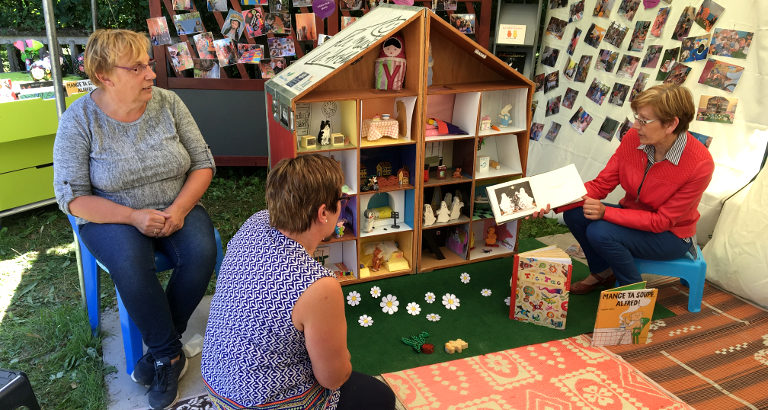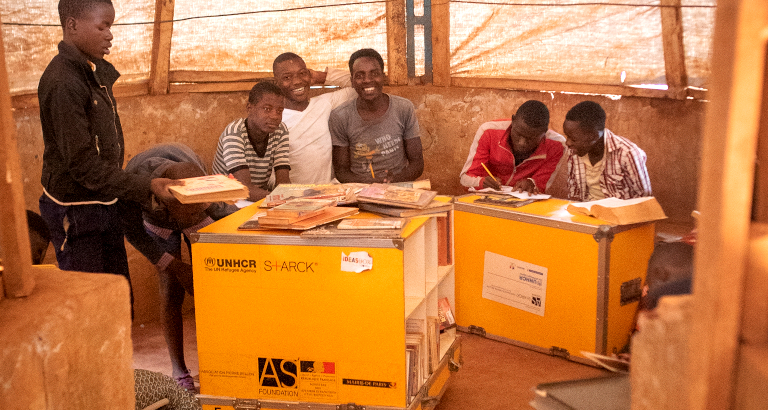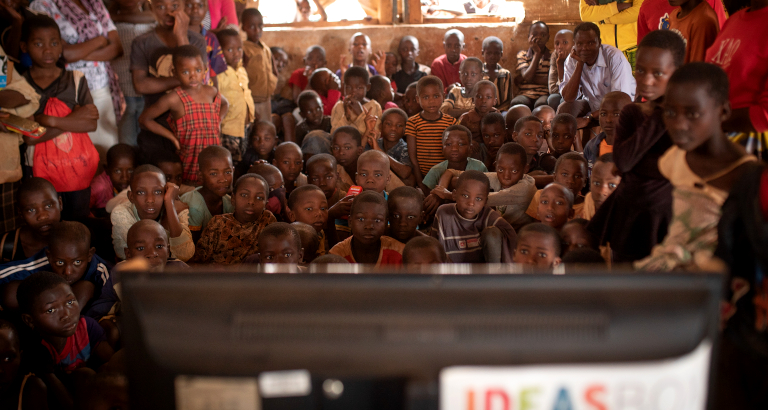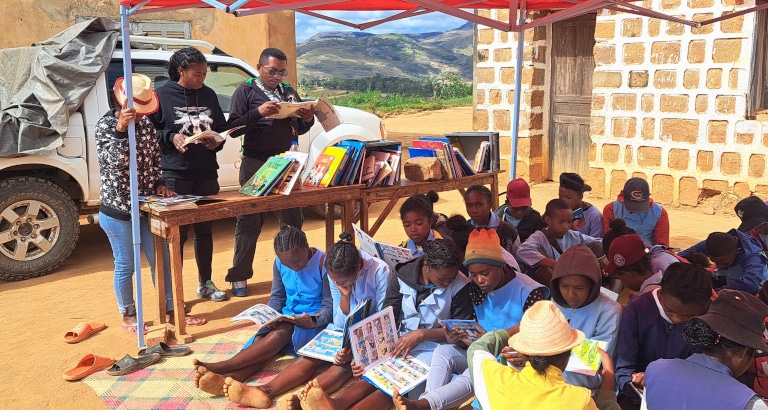
In February of 2014, Libraries Without Borders inaugurated the first Ideas Box kit in Burundi. In partnership with UNHCR and IRC, three Congolese refugee camps in Bwagiriza, Musasa and Kavumu received kits. The first was installed in the Musasa camp, twenty kilometers from the Rwandan border. Now six years later, what are they like? A library to learn, create and play. A place to gain knowledge, of refuge and to meet to forget trauma.
Returning from this inauguration with Benjamin Gausset, Regional Coordinator in the African Great Lakes, and future projects.
Burundi now has close to 80,000 refugees, where the mass majority are Congolaise. In the Musasa camp, in the province of NGozi, 8,500 refugees are settled in makeshift dwellings, 5,000 refugees are children and adolescents. Six years ago, in February, the Ideas Box arrived by truck, like when the ice cream man comes.
“I remember very well the look of wonder from the men, women, and children when the Ideas Box arrived in the camp. It was close to a hundred and fifty people, all curious and amazed in front of the colored boxes. Some were even singing: it was an incredible event for them, it was like a blessing!” explains Benjamin.
The youth hurried to be part of the project to work as presenters and mediators. Some were informants, others librarians and cultural mediators. The profile selection was made according to our needs and the skills of each participant; so to fairly represent the communities in Musasa.
Very quickly, the Ideas Box was met with immense success. Refugees of the camp, partners and even the Burundaise were present each day.
“During the training and the first activities, everyone was participating, invested and curious. It is the most important thing to me. That the people feel happy and able to find books and games that interest them. As they were not able to go to school, the children were finally able to continue learning and dreaming of a better future. Their mothers were in turn less worried about going to work, knowing their children are busy attending the only library in camp.”



